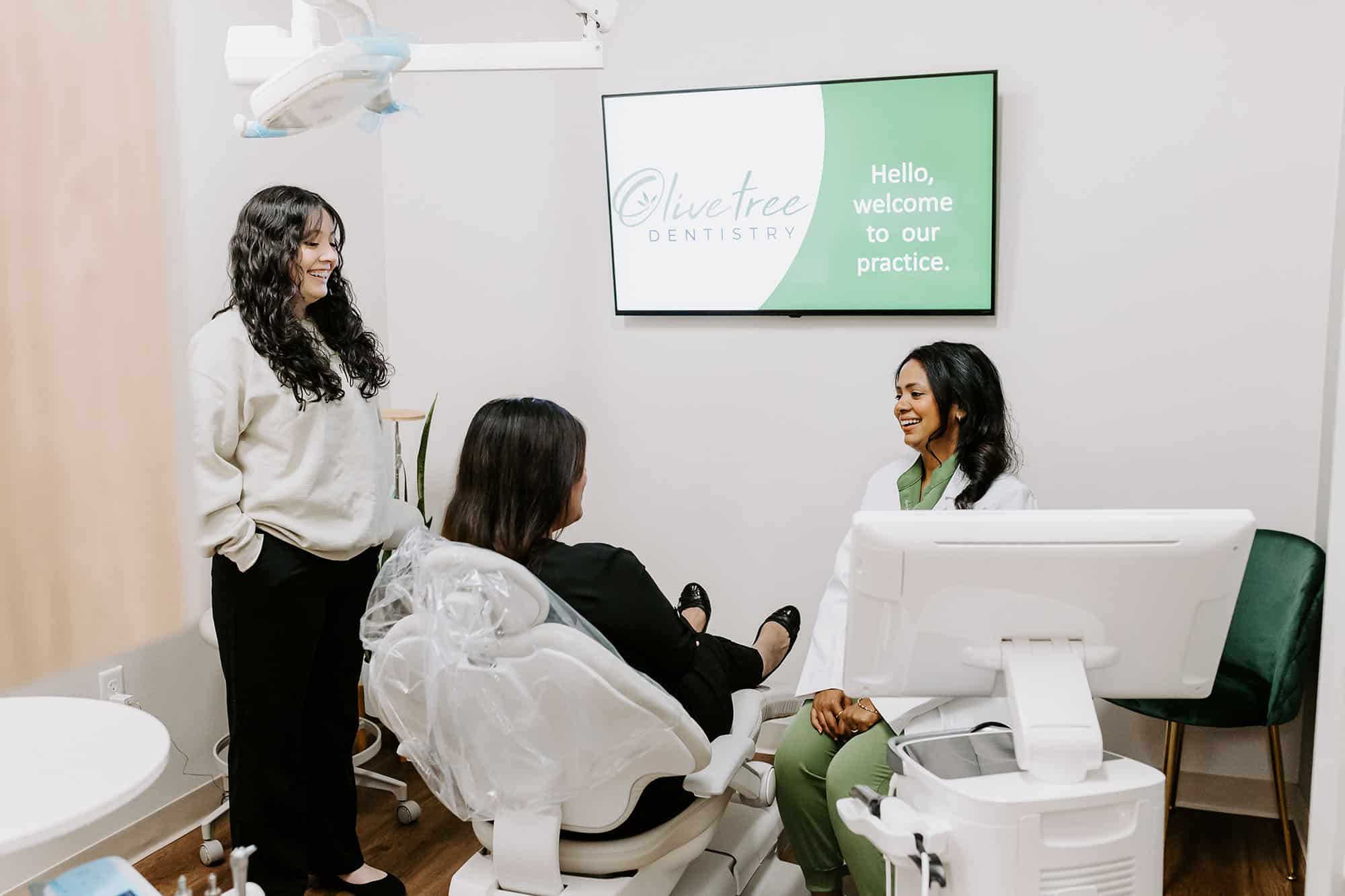
OliveTree Dentistry is open
Monday: 8:00AM to 5:00PM
Tuesday: 8:00AM to 5:00PM
Thursday: 8:00AM to 5:00PM
Friday: 8:00AM to 5:00PM
Saturday: By appointment only
Please note that our office will be closed in observance of the following holidays:
New Year’s Day, President’s Day, Good Friday, Memorial Day, Fourth of July, Labor Day, Thanksgiving, Friday after Thanksgiving, Christmas
For your convenience, we offer the following methods to schedule your appointments:
The American Dental Association recommends twice-yearly exams and cleanings. Some people may need more frequent check-ups based on their dental needs. After your first exam, we’ll be able to determine the best frequency for your dental health.
Please call our office at least 24 hours in advance of your appointment. We’ll work with you to help you find another date that fits your schedule.
We understand that unforeseen situations may arise that are out of our control. If you miss an appointment, please contact our office immediately to reschedule.
If you have pain or an emergency situation, every attempt will be made to see you within 24 hours.

OliveTree Dentistry provides general, pediatric, cosmetic and restorative dental services. Please click on our services tab for more details.
We will conduct a thorough examination on your first visit to determine the best course of action to achieve dental health and your goals. We will:
Many health conditions are indicated in the mouth and can affect oral health, so your medical information is very important in diagnosing issues with your teeth, gums and mouth.
Fillings can last for many years, but over time they wear down, discolor, crack and sometimes fall out. Early detection of problems with fillings can help you avoid getting cavities under the filling and causing more serious decay. Let us know if you’re experiencing any pain. We’ll check your fillings at every visit to determine if any need to be replaced.
Composite fillings are widely preferred to amalgam today to fill new cavities and replace old fillings needing repair. However, there are some instances when amalgam is still recommended, based on your individual health profile. In addition, some insurance providers will not approve composite fillings in posterior teeth, which would increase your out-of-pocket expenses.
Absolutely. Dental X-rays are essential, preventative, diagnostic tools. Many oral conditions occur between teeth or under the gums or bones, undetectable by the human eye, and may have no early signs or symptoms. Left untreated, these conditions can create serious dental and general health problems, including loss of teeth and heart problems. Early detection with X-rays can make treatment much less painful, faster, and less expensive. The American Dental Association recommends getting a full series every three years.
If you have pain or an emergency situation, every attempt will be made to see you within 24 hours.

Many dental procedures can be completed under local anesthesia. However, to help more anxious patients relax, or for more complex procedures, inhalation sedation, oral sedation (including nitrous oxide) and IV sedation are available.
The most common anesthesia, Novocaine works by blocking the nerve that supplies sensation to the teeth in a specific area. You feel no pain during the procedure and are totally alert, aware, and able to function normally. The effect wears off fairly quickly with no side effects.
Known as nitrous oxide or “laughing gas,” you’ll experience a feeling of euphoria after just 2-3 minutes of breathing in the gas. You’ll be aware of your surroundings and able to respond to questions. Inhalation sedation has very few side effects and is eliminated from the body within 3 to 5 minutes after the gas supply is stopped.
This general anesthetic allows you to be conscious but feel nothing during treatment. We provide you with medication to be taken before your appointment, allowing you to be fully relaxed by the time we begin your dental treatment. You may not be safe to drive, so you should expect to have someone bring you to our office and take you home after your appointment.
These drugs are administered into the blood stream, allowing you to close your eyes and relax in a semi-conscious state with little or no memory of the treatment. You will not be safe to drive, so you should expect to have someone bring you to our office and take you home after your appointment.

According to the American Academy of Pediatric Dentistry, you should begin cleaning your child’s gums with a soft cloth soon after birth. As soon as the first tooth appears, start brushing twice daily with a soft infant toothbrush and just a smear of toothpaste. When you come in for your child’s first visit, we’ll show you how to brush properly.
The American Academy of Pediatric Dentistry recommends visiting the dentist as soon as the first tooth appears, or by the child’s first birthday. We can look for potential problems and help your child get to know us as their friend. These early visits can make your child’s experience with a dentist a positive one.
Please note that patients under 18 must be accompanied by a parent or guardian at all visits. We want to meet with both of you to discuss findings and treatments, and to address your questions and concerns.